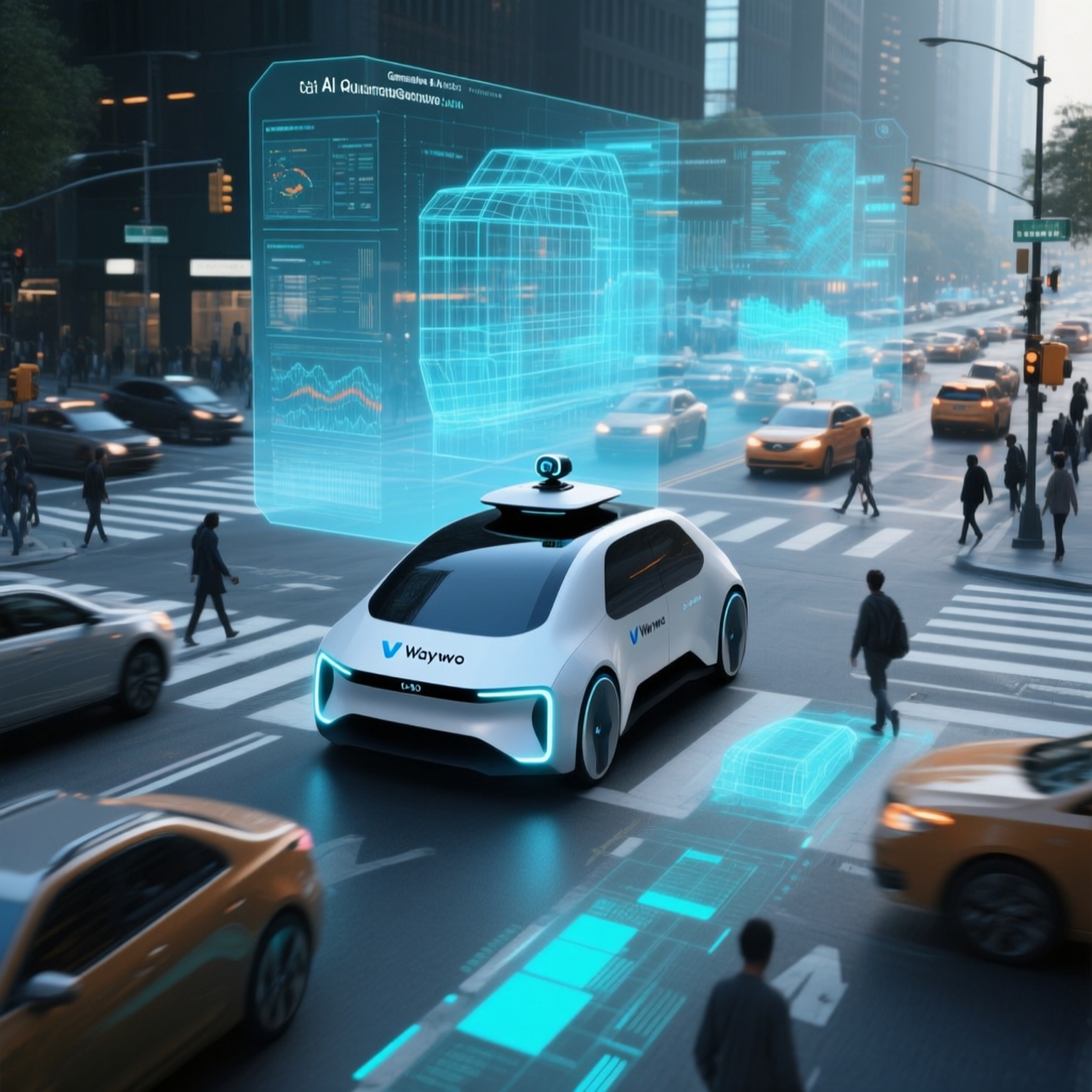What is Agentic AI and How Does it Work?
Preface
The way we live and work has drastically changed as a result of AI. No wonder that generative AI has impressed us with its capabilities and is serving a significant milestone in this journey. However, there is a new frontier- Agentic AI, also known as AI agents. Unlike generic AI, agentic AI does the tasks independently with minimal human interaction, set goals, it can actively take decisions and work independently to achieve them. This shift from passive content creation to active problem solving is expected to transform industries and redefine our interaction with technology.

Agentic AI: The New Frontier in Generative AI
Introduction-
In the early 20’s humans are habitual to the traditional lifestyle with deeply embedded culture, depending on standard methods in various aspects of life. However, the scenario has drastically changed today.The way we live and work has drastically changed as a result of AI. No wonder that generative AI has impressed us with its capabilities and is serving a significant milestone in this journey.
However, there is a new frontier- Agentic AI, also known as AI agents. Unlike generic AI, agentic AI does the tasks independently with minimal human interaction, set goals, it can actively take decisions and work independently to achieve them. This shift from passive content creation to active problem solving is expected to transform industries and redefine our interaction with technology.
How Does Agentic AI Work-
Agentic AI uses a 4 steps approach in problem solving-
Perceive-
AI agents collect information from a range of sources, such as digital interfaces, sensors and databases. This entails identifying relevant entities in the environment, recognizing objects or extracting meaningful features.
Reason-
For tasks like content creation, recommendations, and visual analysis, large language models act as a primary reasoning engine that understands problems, identifying solutions and managing particular models. A technique called Retrieval- Augmented Generation (RAG) is used to access the sensitive data to provide precise responses.
Act-
Application program interfaces allow agentic AI to rapidly execute the tasks by integrating with external tools and softwares based on the plans it has developed. For the AI agents to perform the tasks accurately guardrails can be added. For instance, a customer care AI assistant can manage the claims up to a certain limit, while claims above the limit would require human approval.
Learn-
Through a feedback loop sometimes referred to as “data flywheel” , agentic AI improves overtime. It uses information from its exchanges to improve its models. Because of its versatility, it became a useful tool for the businesses enabling them to operate more effectively and make better decisions.
Difference Between Generative AI And Agentic AI-
| Feature | Generative AI | Agentic AI |
|---|---|---|
| Definition | Generic AI performs a wide variety of duties without any specific focus. | Agentic AI is an advanced AI which can perform the tasks autonomously and could make continuous improvement through interaction and feedback loops. |
| Capability | It can receive inputs and provide outputs for a variety of tasks, like responding to queries, content creation or for data analysis. While it works within a limit, it doesn’t make the decisions on its own. | It works towards goals and achieves them with determination, with the use of advanced tools it tackles the challenges, and adapts and learns from real world interactions and feedback. |
| Use Cases | Specialized in content creation, delivering personalized experiences, and responding in a human like manner. Perfect for the tasks which require innovation, creativity and personalized interaction. | Automation enables routine task management, process simplification, repetitive action automation and effectively managing complex workflows. |
| Adaptability | Adaptable nature is limited, it won't learn from the interactions and requires manual intervention | Highly adaptive, it learns from the interactions and improves the performance with the help of feedback mechanism called “data flywheel” |
| Interaction | It’s passive in nature, doesn’t not work independently but responds to user commands | It’s active in nature and act independently, takes initiative in decision making and problem solving. |
Evolution From Generative AI To Agentic AI-
Artificial Intelligence has grown rapidly, with the generative AI it has made remarkable advancements. Early advancements like Gpt- 2 demonstrated the ability to produce human-like text, while more sophisticated models like GPT-4 brought richer and more complex interactions. However, these systems rely on user instructions to function.
Agentic AI represents a shift from passive content creation to active decision making and independent task performance. Key innovations driving agentic AI include reinforcement learning, which allows AI to learn from trial and error, knowledge graphs to understand complex data links and planning the algorithms for goal oriented behaviours.
This development has been demonstrated from tools like AutoGPT and BabyAGI which offer hints of AI systems that are capable of solving their problems independently. Agentic AI needs limited human input to acknowledge goals, make decisions and adjust to changing situations unlike reactive generative AI.
Industries are transforming as a result of a change. For instance, autonomous vehicles navigate and make decisions in real time, while smart assistants like Google Assistant and Siri effortlessly complete their tasks. According to Techstrong.ai businesses are likely to adopt agentic AI gradually; 46% of businesses have integrated AI agents and 29% are looking into solutions to increase personalization and productivity.
Agentic AI is poised to transform the industries in 2025 with the help of industry giants like Microsoft and Salesforce. By combining autonomy and scalability, these systems promise to unleash unimaginable potential in creativity, decision making, and instead of just being a progression the evolution from generative AI to agentic AI represents a revolution in the way we use AI.
Key Characteristics Of Agentic AI-
Ability To Make Decisions-
Agentic AI has the capability to make its decisions on its own with minimal human interaction and effortlessly runs the tasks and empowers systems to problem-solving and take necessary actions. These models are therefore ideal for tasks that require real time overseeing and immediate decision making.
Learning And Adaptation-
Agentic AI examines data, identifies trends, and learns from their past experiences to gradually improve their behaviour with the help of machine learning techniques such as reinforcement learning. As a result, agentic AI can function effectively in dynamic environments and adapt its strategies based on new information or strategies.
Objective Oriented Behaviour-
The purpose of agentic AI is to accomplish specific tasks independently. Agentic AI efficiently resolves challenging issues by combining machine learning skills and goal oriented behaviour.
Scalability-
Agentic AI has the ability to unlock a wide range of opportunities for every sector including, customer support, healthcare, finance, etc.
Personalization-
Agentic AI is capable of personalizing the experiences and solutions with the ability to learn from the user interactions which pave the way to meet individual demands.
Application Of Agentic AI Across Industries-
Manufacturing-
The largest industrial manufacturing company “Siemens” transformed its maintenance operations by employing AI models that evaluate sensor data to anticipate equipment problems before they happen and enable proactive maintenance scheduling. The system offers a thorough picture of the equipment state through the analysis of vibration, temperature and acoustic signal data. Siemens MindSphere and AI methods like regression and deep learning are used in this solution which led to 20% reduction in maintenance cost and has resulted in 15% increase in production uptime.
Finance-
The global financial services leader “J.P.Morgan”, which uses a tool called “J.P Morgan Contract Intelligence” utilizes AI to evaluate legal documents and quickly extract important information. It uses Python, Hadoop, the COiN framework and NLP with GPT models. The technology has reduced compliance risks through the annual savings of 3,60,000 hours of manual review every year. Additionally, it improves the accuracy of document analysis and increases employee productivity. This AI driven solution increases operational and financial efficiency by streamlining previously laborious processes.
Retail-
A multinational online retail company “Amazon” uses AI in order to generate personalized recommendations to analyse previous purchases, browsing trends, and visual preferences. To enhance the shopping experience this platform uses AWS SageMaker, Amazon Personalize, and deep learning models. This has led to a 35% increase in sales and customer retention has improved by 20%. Additionally, it boosts customer satisfaction and platform engagement.
HealthCare-
A private American academic medical centre “Mayo Clinic” enhanced its radiology operations by combining imaging data with patient information to provide faster and more precise diagnosis. Using tools like CNNs, NVIDIA, Clara and PyTorch, it simplifies decision making and automates procedures. This innovation has decreased unnecessary operations by 15% and lowered diagnostic times by 30%.
Media And Entertainment-
The world’s largest online streaming platform “Netflix” uses AI to analyze ratings, viewing trends, and content attributes in order to make personalized recommendations that improve user engagement. Utilizing multimodal AI frameworks such as AWS and Apache Spark, it ensures that content is in line with user preferences. Subscription renewals and retention rates have increased by 10% as a result of this technique. It enhances individualized experiences and content strategy in addition to rising revenue.
Conclusion-
In conclusion, the transformation from generative AI to agentic AI is a revolutionary advance in AI as the technology progresses from reacting to human inputs to making the decisions on its own. Agentic AI has the potential to change a wide range of sectors from healthcare to finance, retail, manufacturing and entertainment media by combining sophisticated learning methods, decision making powers, and flexibility. As the companies increasingly adopt the agentic AI it enhances the efficiency, tailored experiences and improves decision making is enormous. AI has the capability to unlock unprecedented possibilities, developing the future of technology and interaction with our daily lives.


